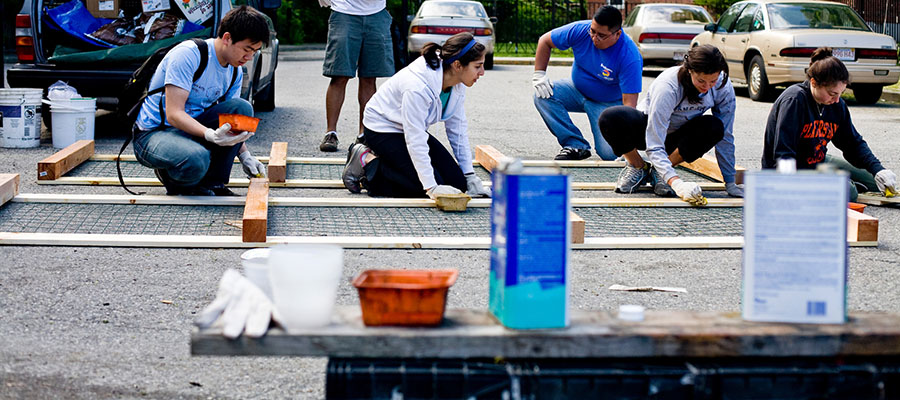Civic and Economic Mobility

Growing Voters in Rural Communities
Expanding the Electorate
Civic Deserts
Overview
Our society has divested from the key transition period between adolescence and adulthood, especially for youth who are not part of traditional institutions such as colleges, stable employment, or families, and may experience challenges in multiple facets of their lives. This type of divestment has severely limited youth opportunity to develop into civic and political leaders and to experience economic mobility. Once young people exit high school and do not or cannot attend college, opportunities are very limited, especially for youth of color, to obtain career opportunities with growth potential. In fact, our own experimental study about AmeriCorps volunteers inadvertently found that there are virtually no jobs available for youth without college credentials (Benenson, Hayat, Sullivan, Levine & Kawashima-Ginsberg, 2016).
Currently, civic engagement, even deep, and long-term civic engagement such as youth organizing, is usually not viewed as a career or community development opportunity. However, young adults often gain relevant career skills when they immerse themselves in civic work, such as coalition-building, communication, project development and implementation, meeting facilitation, and problem-solving. Our evaluations of programs like YouthBuild and ServiceWorks have found that training and employment programs for young adults also teach valuable civic skills, and that in turn civic skills can improve young people's professional and academic prospects.
Our continued research into these intersecting mobilities focuses on what can be imagined at the community, network, and system level as opportunities for youth to gain skills and contribute to the cause they work on, but also gain credentials and marketable skills that can serve as a catalyst for the next steps that they envision for themselves, their families, and their communities.
Latest Research
Lack of Civic Support for Rural Youth May Lead to Lower Civic Engagement
Understanding the Essential Role of Broadband Access For An Equitable Democracy
Growing Voters in Rural Communities
Major Reports
That's Not Democracy
Our landmark 2012 report on how young people who aren't in school engage in civic life—or, more often, lack the opportunities to do so—highlights implications for young people's civic and economic mobility and offers recommendations for engaging these youth.
Millennials Civic Health Index
In 2013 we took a comprehensive look at the civic lives of young people, highlighting issues of civic and economic mobility like lower engagement from non-college youth and how the recession impacted Millennials.
Civic Health and Unemployment
Two major CIRCLE reports explored the connections between a community's level of civic health and its ability to withstand and recover from the recession, finding strong correlation between civic engagement and unemployment.

